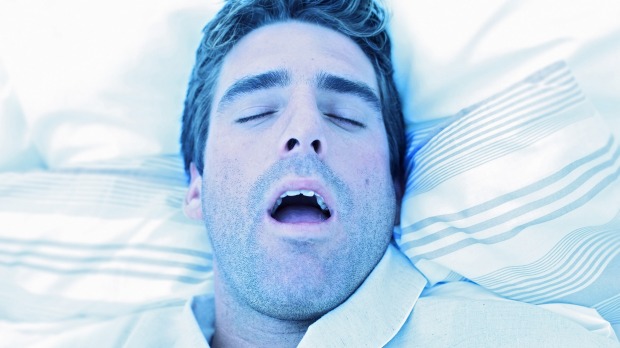
Experts have raised fears people are being wrongly diagnosed with sleeping problems and then being advised to buy expensive sleeping aids. Photo: Getty Images
There are fears that many patients visiting commercial sleep clinics are being wrongly diagnosed with conditions so they will pay thousands of dollars for medical equipment they don’t need.
Leading sleep specialists at the Royal Melbourne Hospital are concerned about a trend towards diagnoses of sleep apnoea among patients who have had sleep studies done by private commercial clinics and companies that sell oxygen masks for the illness.
It comes as the federal health department is investigating a blowout in the number of sleep studies billed to Medicare in the past five years, many of which are not being carried out by sleep doctors.
In an “urgent memo” sent to GPs recently, Royal Melbourne hospital specialists said in more than half of cases the results of sleep studies could not be repeated.
In one case, a 75-year-old woman whose husband had recently died was diagnosed with sleep apnoea and told she was at risk of a heart attack if she did not purchase an oxygen mask, but the results of her sleep study could not be replicated and she was later found to be suffering from insomnia brought on by her husband’s death.
Sleep apnoea involves interruptions to breathing during sleep and is usually marked with heavy snoring. It can lead to sufferers having interrupted sleep or waking up and feeling un-rested.
One treatment for sleep apnoea is a CPAP machine – a pump that provides a constant air supply through a face mask worn by the sleeping person – that can cost between $1500 and $2500.
But the Australasian Sleep Association is concerned about potential conflicts of interest between some people who are diagnosing sleep apnoea and selling CPAP machines.
ASA President Nick Antic said there were isolated cases of patients not getting a proper assessment for sleep apnoea, despite accredited sleep practitioners working within the peak body’s guidelines, which state there should be a separation of interests. He said the CPAP machines should be made prescription-only devices.
Royal Melbourne Hospital head of sleep medicine Jeremy Goldin said many home-based sleep studies performed by doctors were diagnosing sleep apnoea without referring a clinical assessment of the patient to a specialist sleep doctor. He said home-based sleep studies also ran the risk of producing inaccurate data or of the results being misinterpreted.
“The most effective clinical model is the sleep physician being at the centre, but in some cases the pharmacy or the CPAP provider is at the centre of decision making,” he said. “And I’m not sure if it’s great to have commercial entities involved in the diagnosis.”
The studies, which are used in the diagnosis of obstructive sleep apnoea, involve a patient’s brain activity, breathing and oxygen supply being monitored during times of sleep. The majority of such studies are carried out in laboratories, but the home-based model is increasingly gaining traction.
Dr Goldin said home-based sleep studies tended to miss the complexities of the condition: “They put people into two boxes – no sleep apnoea or obstructive sleep apnoea. But there are varying severities and it often co-exists with other conditions that may be more important.”
Austin Health sleep physician Mark Howard said about 25 per cent of men and 10 per cent of women had sleep apnoea, with people who are older or overweight more at risk of the condition.
A small proportion of sufferers have a serious case of sleep apnoea, and of those he said about half would need a CPAP machine or a mouthguard that improves air flow.
